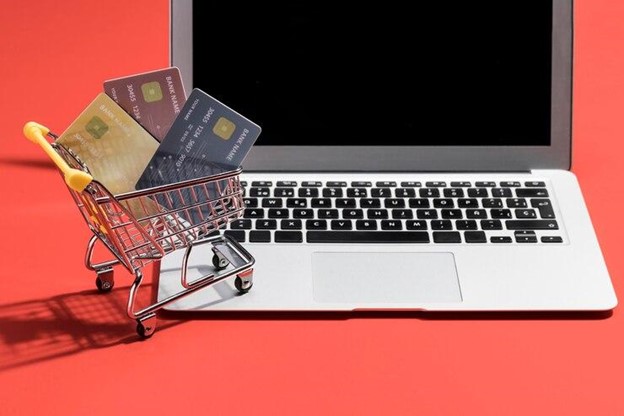PayTabs’ Solutions for Optimizing Retail and E-commerce Payments in the UAE

By 2026, UAE’s retail market is poised to hit a staggering volume of around USD 114 billion. And by 2029, the country’s ecommerce market is likely to reach USD 18.99 billion. So, whether you are a retailer with a brick and mortar store or run an ecommerce website, improving the shopper experience in this dynamic environment can prove to be immensely lucrative. Fortunately, a reliable and innovative online payment gateway provider like PayTabs can help by making your customer’s checkout process simple, fast, efficient, and secure. There is a slew of ecommerce and retail payment solutions in UAE that PayTabs offers to suit businesses of all types and sizes. Whether you are an established entity or just starting out, you can attract more traffic, drive more conversions, earn more revenue, and grow in the UAE and beyond steadily.
So, let’s learn more about PayTabs’ solutions that can help optimize your payments.
PayTabs’ Retail and Ecommerce Payment Solutions in UAE
Listed below are the cutting-edge solutions offered by PayTabs that simplify transactions, enhance customer satisfaction, and boost sales:
-
Digital Invoicing
If you are looking for smart ecommerce payments solutions that allow you to do business with customers in other countries seamlessly, digital invoicing is the way to go. Through automation, it not only minimizes the scope of human error and cumbersome paperwork, but also increases your cash inflow. You can send automatically crafted invoices via SMS, email, QR code, WhatsApp, or social media to your customers and then can make the payment with just a few taps digitally. You can customize the invoices, track and manage all of them on a single platform, and accept payments in various currencies. Being able to pay in their local currency can also allow shoppers to trust your business better, feel comfortable, and keep coming back for more.
-
QR Code
One of the best retail payment solutions currently, QR codes enable customers to do a simple scan with their smartphones, check the bill amount, and make the payment via an app or card. The entire process takes seconds and doesn’t involve contact of any kind. Whether you run a restaurant, fashion outlet, or pharmacy, QR code payment can help you promote sanitary shopping.
-
Payment Links
If you are not too keen on adopting complicated ecommerce integrations for payment, PayLinks from PayTabs can simplify life for you. After creating a custom link for payment (you just need to follow a few easy instructions for this), you can share the same with shoppers via SMS, email, any messaging app, or social media. When your customer clicks on it, they will be instantly routed to a payment page and they can do the needful there. PayLinks also makes it hassle-free to create ads or promotions on social platforms and share links to encourage impulse purchases.
-
Social Commerce
When it comes to ecommerce payment solutions, you cannot ignore the importance of simplifying shopping on social media. Especially if you are a freelancer, startup, or influencer, it makes sense to ease the shopping experience of those who follow you sincerely on Instagram, Twitter, Facebook, etc. The good news is that Paymes from PayTabs makes it all frictionless. Even if you don’t have a website, you can set up a digital storefront and display your products along with relevant information in minutes. You can even personalize or brand your store. Once a shopper places an order, you can send them a payment link or static QR code to complete the transaction.
In case you like showcasing your products through Instagram reels, sign up on Paymes’ ReelsPay, add your video link, list the items, and share the link with those who follow you. You can also add the ReelsPay link to your story or profile to generate more awareness.
-
POS Machines
PayTabs will soon bring advanced POS machines to disrupt the market for retail payment solutions in UAE. These machines will not only be extremely reliable and precise, but will also facilitate superfast transactions. Besides making the checkout experience seamless for customers, these POS machines will have in-depth reporting capabilities, so you can gain better visibility of your business’s financial side.
For all the solutions mentioned above, PayTabs takes special care to ensure the security of sensitive information or data. Robust encryption and authentication measures are put in place to prevent frauds and malicious attacks, which is good news for both merchants like you and shoppers. Your customers won’t need to worry about losing money or compromised details, while you can successfully avoid reputational loss.
Scale Your Retail or Ecommerce Business with PayTabs
In a nutshell, when it comes to future-forward retail and ecommerce payments solutions in UAE, PayTabs is your best bet. In case your venture is large and you deal with complex operations or workflows, you can consider availing payment orchestration solutions too. This way, you will be able to manage multiple banks, payment gateways, and payment processors in a unified manner and cost-effectively. PayTabs also provides sophisticated analytics capabilities, so you can derive data-backed insights, spot gaps in financial operations, and make better decisions in the future.





